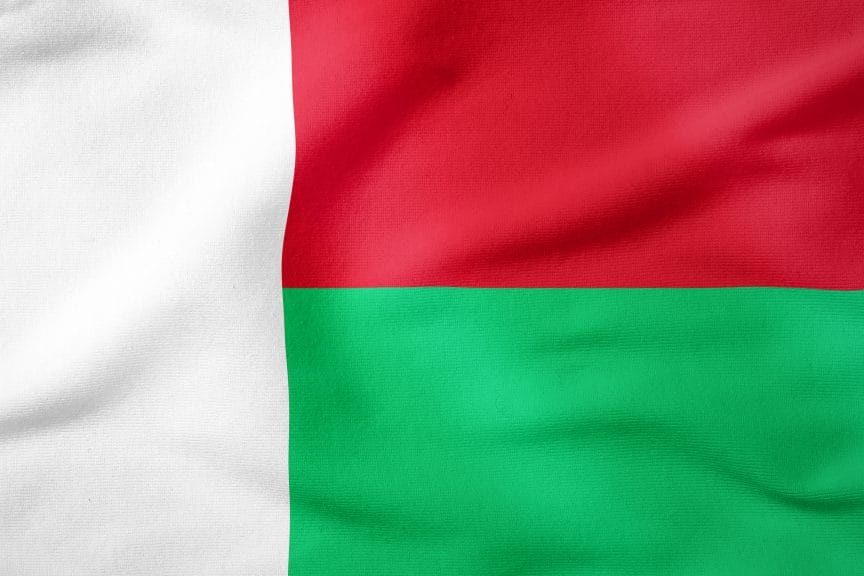Madagascar’s government has taken controversial steps towards restraining child abuse in the country. Last week, the Malagasy National Assembly and Senate approved a tough penal code for child sexual offenses. If ratified by the Supreme Constitutional Court and President Andry Rajoelina, the law will permit castration and life imprisonment sentences.
‘Madagascar is a sovereign country which has the right to modify its laws in relation to circumstances and in the general interest of the people,’ commented Justice Minister Landy Randriamanantenasoa. ‘We wanted to protect children much more. The younger the child, the greater the punishment.’
Under the new code, surgical castration ‘will always be pronounced’ for sexual offenses towards children under 10; either surgical or chemical castration for those children aged 10 to 13; and chemical castration for those towards 14-to-17-year-olds. Prison sentences will also be extended, reaching life incarceration in some cases.
Capital punishment has been outlawed in Madagascar since December 2014.
The exact castration procedures have not yet been confirmed. Anti-depressants or anti-androgen drugs are the most common means of chemical castration. Anti-androgens are typically considered the harsher method, knocking patients’ testosterone production to pre-pubescent levels. Both medications are, however, reversible and do not cause infertility.
Surgical castration permanently removes testosterone-producing tissue from the body, blocking any future procreation. Testicular pulpectomy, the procedure upheld by the Czech and German penal systems, doubles as a common treatment for testicular cancer.
Side effects of chemical and surgical castration include breast growth, body hair loss, osteoporosis, heart issues and hot flushes. ‘I know it’s harmful to my body,’ post-castration child sex abusers lamented on Kazakh TV. ‘Now I am sorry I committed such a crime.’
Amnesty International condemns the new Malagasy law as a human rights violation.
‘Implementing chemical and surgical castration, which constitutes cruel, inhuman and degrading treatment, as a punishment for those found guilty of raping minors is inconsistent with Malagasy constitutional provisions against torture and other ill-treatment, as well as regional and international human rights standards,’ claims Amnesty Regional Director for East and Southern Africa Tigere Chagutah.
‘The Malagasy authorities must instead prioritize a survivor-centered approach, which empowers and enables survivors to report safely without fear of stigmatization and retaliation; effectively holds perpetrator to account and introduces necessary reforms to the criminal justice system to ensure survivors can access timely justice and remedies, and moreover, strengthens prevention efforts to address and eliminate root causes.’
Madagascar is, by no means, the first country to implement forced castration. 7 US states, South Korea, the Czech Republic, Ukraine, Nigeria and Pakistan have already imposed the punishment. The United Kingdom encourages child sex offenders to volunteer themselves for chemical castration.
Doubts have been raised about the Malagasy penal system’s ability to perform medical procedures safely. Upon visiting Madagascar in April last year, the UN Subcommittee on Prevention of Torture witnessed ‘extreme overcrowding […] in prisons, close to 1000% in some of them.’ Video recordings provide a similarly damning image.
‘There really is a rape culture in Madagascar,’ Jessica Nivoseheno, from Malagasy charity Women Break the Silence, told Sky News. ‘We are in the process of normalizing certain cases of sexual violence, also minimizing the seriousness of these cases.’
Child prostitution is rising alongside drought-induced malnutrition on the Indian Ocean island. Hotels, bars and nightclubs frequently rent out girls and boys for sexual abuse.
‘On the island, complaint procedures and trials are not carried out anonymously,’ says Amnesty advisor Nciko wa Nciko. ‘There is a lack of confidence in the Malagasy criminal justice system due to opacity and corruption. And reprisals against rape victims are frequent. However, the law does not combat these factors.’
Abortion for sexual abuse victims remains illegal in Madagascar under the 1998 Penal Code and 2011 Health Code. 600 child rape cases were reported in 2023. 113 arose this January alone.














